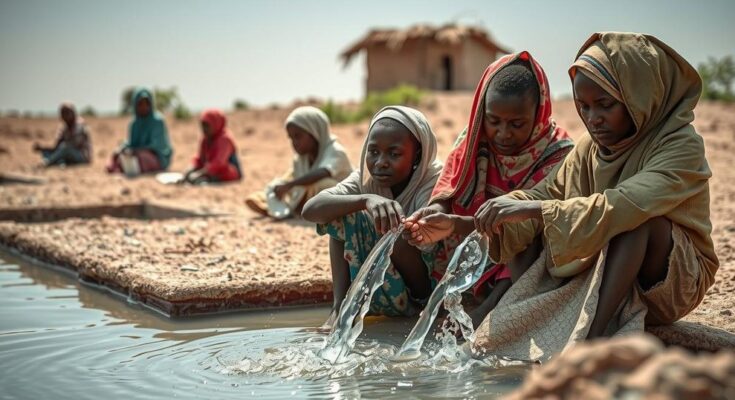Sudanese refugees in Chad, especially in Tongori camp, confront a critical shortage of clean drinking water. Many are forced to rely on polluted water sources, risking their health. The relocation of refugees due to ongoing conflict has intensified these challenges, necessitating immediate humanitarian assistance to prevent further suffering.
Sudanese refugees in Chad, particularly those residing in the recently established Tongori camp, are currently facing a severe shortage of clean drinking water. Aisha Adam Ishag, a survivor of the violence in El Geneina, has shared her struggles in securing safe drinking water, receiving only 60 liters daily, which is far from sufficient. Many refugees are compelled to retrieve water from contaminated sources, such as sewers and polluted valleys, posing significant health risks, particularly for children.
The ongoing conflict in Sudan, marked by violent clashes between the Sudanese Armed Forces and the Rapid Support Forces, has resulted in a mass exodus of individuals seeking asylum in neighboring Chad. Since April 2023, an influx of new refugees has strained resources in existing camps like Adré, leading to tensions with local communities. As a response, authorities moved many refugees to Tongori camp, which is notably remote and lacks basic services, exacerbating the challenges faced by these displaced individuals.
In summary, the plight of Sudanese refugees in Chad highlights a critical humanitarian crisis exacerbated by a profound shortage of safe drinking water and essential services. With many refugees experiencing significant hardships, including reliance on contaminated water sources, urgent international assistance is essential to address their pressing needs and enhance their living conditions in the camps.
Original Source: www.dabangasudan.org




